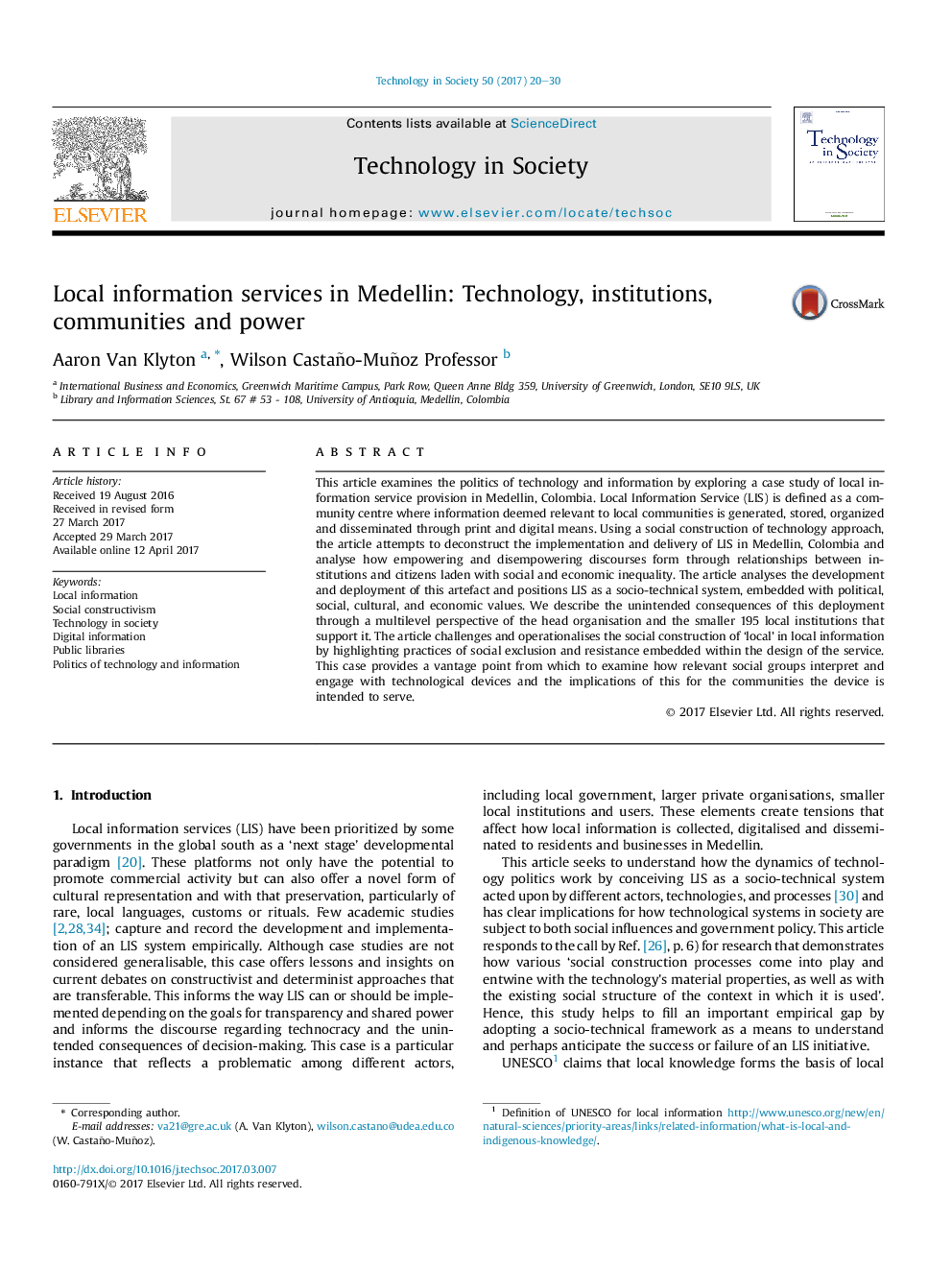ترجمه فارسی عنوان مقاله
خدمات اطلاعات محلی در مدلیین: فناوری، موسسات، جوامع و قدرت
عنوان انگلیسی
Local information services in Medellin: Technology, institutions, communities and power
| کد مقاله | سال انتشار | تعداد صفحات مقاله انگلیسی |
|---|---|---|
| 106705 | 2017 | 11 صفحه PDF |
منبع

Publisher : Elsevier - Science Direct (الزویر - ساینس دایرکت)
Journal : Technology in Society, Volume 50, August 2017, Pages 20-30
ترجمه کلمات کلیدی
اطلاعات محلی، سازگاری اجتماعی، فناوری در جامعه، اطلاعات دیجیتال، کتابخانه های عمومی، سیاست فناوری و اطلاعات،
کلمات کلیدی انگلیسی
Local information; Social constructivism; Technology in society; Digital information; Public libraries; Politics of technology and information;

